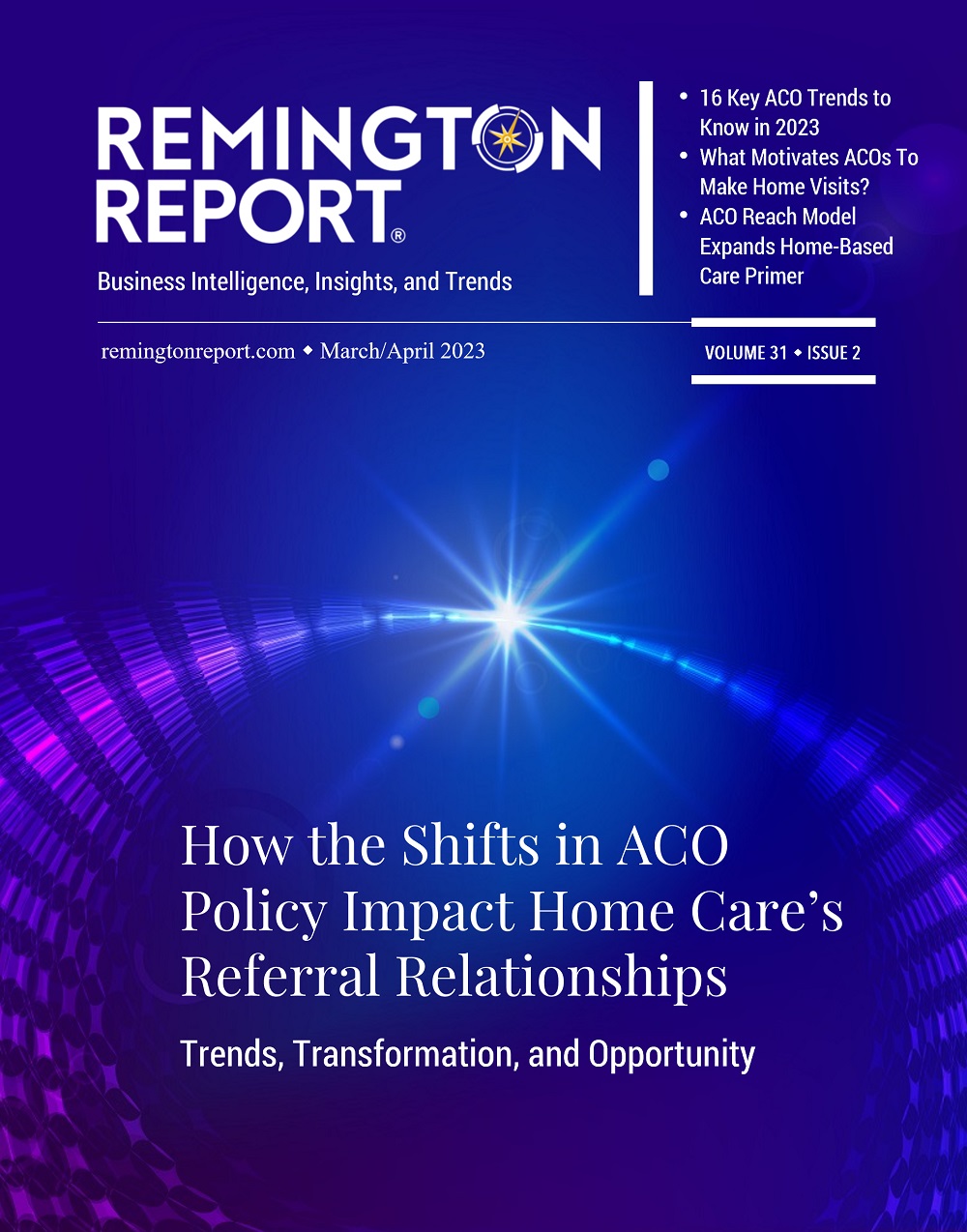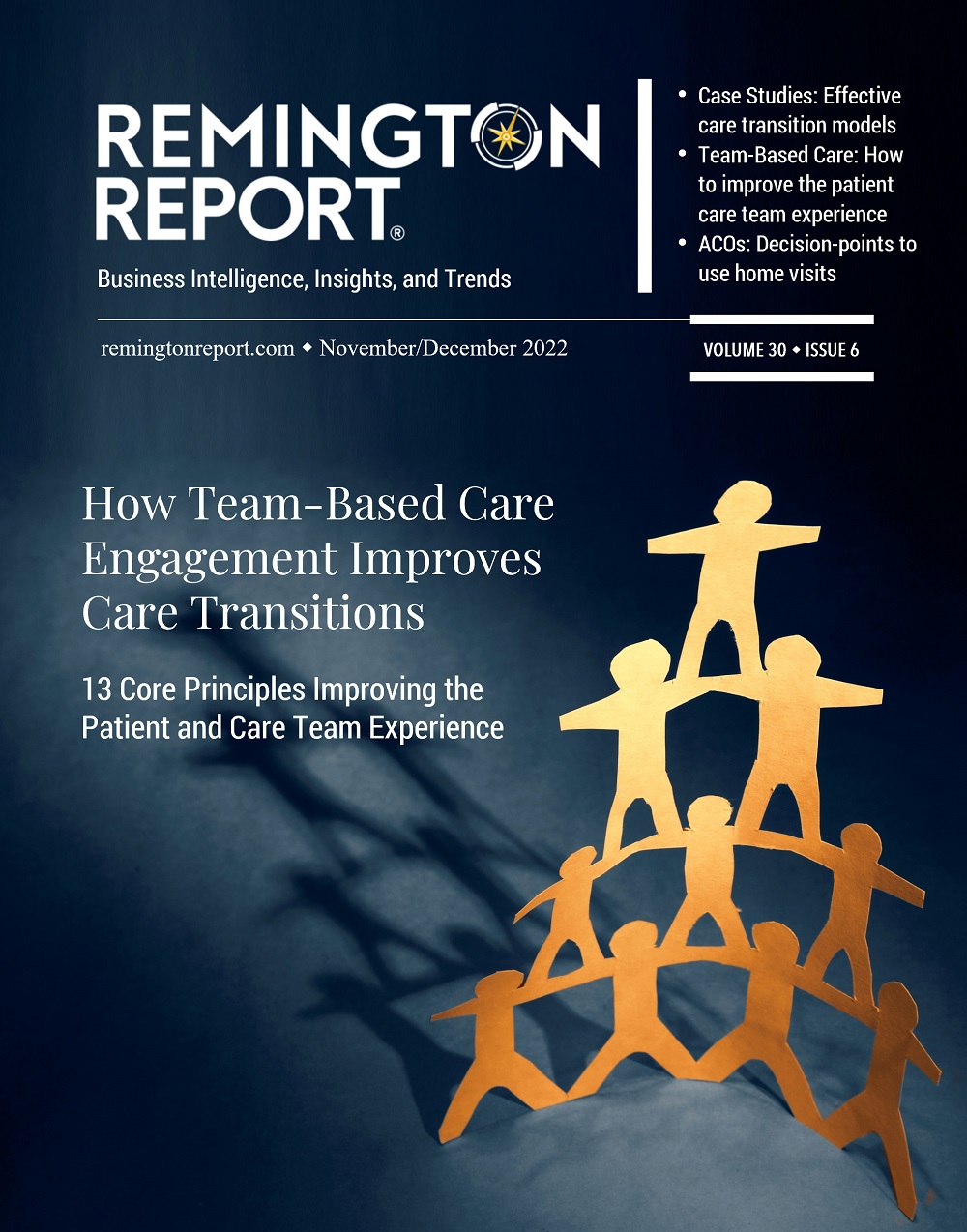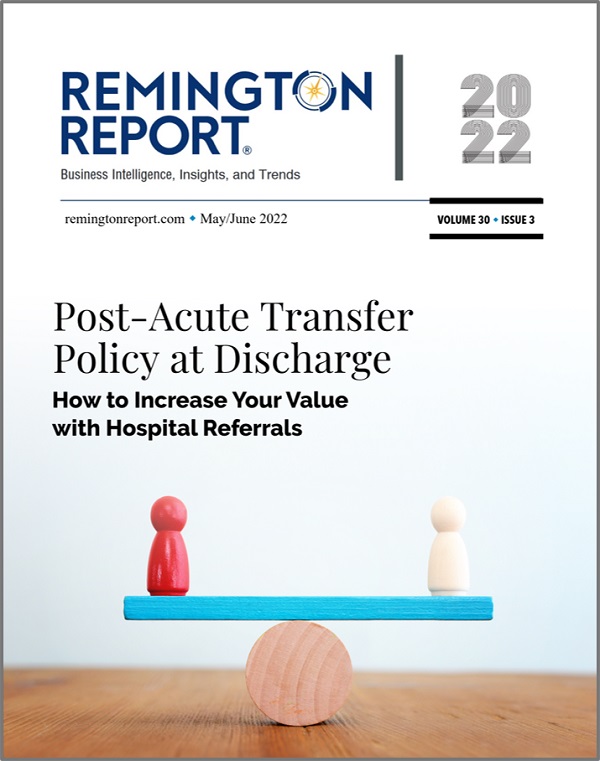INTERACTIVE FEATURES: When viewing this article on an electronic device, note that web addresses are live links. Just click the link to visit that web page.
Click for instructions for moving the PDF into Kindle, Nook, Apple iBooks, and Apple Library.
This collection of stories shares how caregivers overcome the challenges of treating patients during COVID-19. The Remington Report thanks Pat Kelleher, Executive Director, Home Care Alliance of Massachusetts for submitting COVID-19 stories from the caregivers on the frontline in home care.
Caring for COVID in Hospice
by MELANIE CORREIA, MERRIMACK VALLEY HOSPICE
Never did I think I would encounter a pandemic during my nursing career, but here it is. Knowing I would be provided the proper personal protective equipment (PPE), I had no hesitations about working in the new precaution unit our agency established at High Pointe House in Lawrence. I’m proud to work at the first hospice house in Massachusetts that is caring for individuals at end of life who are also positive for COVID-19.
I arrive for my shift early because the nurse I’m replacing has been in PPE for hours, and I know how anxious I feel when it is getting close to the end of my shift. Prior to COVID, I enjoyed doing my hair and makeup for work. I was a hairstylist for 23 years before becoming a nurse, and I don’t think that love of doing hair and makeup ever goes away. But now my hair is always up, and I don’t put on makeup. Instead, I wear a gown, Envo mask, face shield, two pairs of gloves and a hairnet.
During my shift, I work with a care partner. We are continuously checking our patients, giving scheduled medications as well as medications as needed to manage symptoms, and coordinating Skype calls with the nurse practitioner, social worker, and chaplain. The hardest part is making phone calls with families to say goodbyes to their loved ones.
I find I’m always talking to myself, saying it will be OK, but it’s tough. Patients can’t see a comforting smile when we walk into a room, and that is hard. Even more so when you can tell they are afraid and you want them to know it will be OK.
Patients with COVID-19 can have symptoms that need to be managed often. We do a lot of education with families. We want them to understand what we are doing for their loved ones, how we are treating their symptoms and assure them that they are comfortable.
Under the current guidelines, families are allowed to visit for an hour if their loved one’s passing is imminent. This is another difficult part. We are so used to patients being able to have their loved ones at the bedside when they pass. They have us nurses and care partners, but it’s not the same.
I am someone who doesn’t usually cry, but lately I have been crying a lot more. At the end of my shift, when I finally get to take off my PPE, there is not a better feeling! I get dressed into a change of clothes, and everything is bleached and put into a bag. Once home, I shower and wash my scrubs right away.
Another tough part of this is coming home and having my son wait up for me. He waits up every time I work. He just wants to make sure I am OK. He knows at this point he can’t give me a hug or kiss. He has to wait until I am showered first. A positive note is my daughter, who really did not know what she wanted to do for a career, now knows she wants to be a nurse. I think that’s amazing.
I do feel safe in my PPE, and there’s no question I want to care for patients with COVID-19, just like any other communicable disease. Nurses have an amazing ability to hide their fear or anxiety and give all they have to deliver the best care for their patients. As hard as this is, I’m honored to be doing my part for my patients and community.
Dealing with Isolation and Loneliness
By STAFF NURSE, BROCKTON VNA
As I think about what is happening in home care with COVID, I am first happy that I still have a job during this Pandemic unlike others who are working in other places and industries. I love my COVID-19 patients and have come to see they are not just dealing on the physical COVID-19 disease, but they are also dealing with isolation and loneliness. I had a patient who is dealing with grieving from the death of her husband and yet her children can only see her from a distance. I always told her, let me be your daughter for now. Her smiles just made me realize that all the effort and risk I do is all worth it. It is definitely challenging in ways that it takes more of your time to put on the PPE and you need to plan ahead before you see your patient. The most important thing is to know where their garbage bins are, so you know where to don and take off your PPE.
Teamwork in the Time of COVID-19
By SUZE JOSEPH AND NADIA JOLICOEUR, HOUSEWORKS
We split shifts for 24/7 care for Agnes, who lives in senior housing. After she tested positive for COVID-19, some caregivers didn’t want to continue on her case, but we wanted to stay and help care for her. (Nadia took overnight shifts and Suze took days – 12 hours shifts each). We stayed with her until she tested negative and could move out of quarantine back to her regular floor. We learned to work together as a team to make sure the client was safe and in good hands. Caring for a COVID-19 positive patient can be draining physically and emotionally, and we were always willing to come in a little earlier to relieve each other from a shift. We feel we were able to give the family peace of mind, knowing their mother/grandmother was in good hands and safe while the family was unable to visit.
Responding to the Situation
By KIM TRABUCCO, OCCUPATIONAL THERAPIST, PARTNERS HEALTHCARE AT HOME
This pandemic has shaken most of us to our core, yet at the same time it’s helping us know what is important. Victor Frankl, a Holocaust survivor and author of Man’s Search for Meaning, writes: “Forces beyond your control can take away everything you possess except one thing, your freedom to choose how you will respond to situations.
I draw my strength from friends and family who know exactly what it is like to do this job in a Pandemic, and who have taught me patience and what it means to be true friends, checking in when you’re feeling low or had a terrible day. What we all do is so important to keep people living and functioning. I have learned to understand people’s fears and to be honest about my own. My strength is a shared effort that I hope will grow as we work through this challenge.
We are very lucky to have an awesome manager who cares for the team and for myself. I feel confident in calling my colleagues at any time and know they actually care about my life. I have also felt this from other clinicians working in the office or out in the field. When they say we are in this together we really are. I am praying that we will all get stronger and stay healthy through this time, that we will value the people we love and keep striving to become more human.








